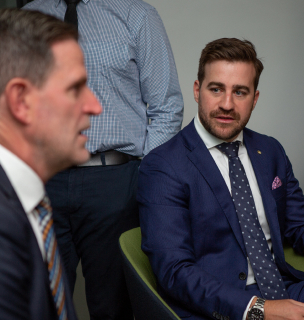Deceased Estates Perth
The management and administration of a deceased estate can be a challenging task. The tax team at Westcourt have deep experience managing deceased estates. Our skillset ranges from preparing deceased estate tax returns, applying for private tax and leveraging the unique tax implication of a deceased estate. Our senior team is commonly engaged to act as executors for our clients, given our intimate knowledge of the financial affairs of a deceased estate.
At its simplest, the tax return for a deceased estate becomes a trust tax return. The deceased (now the settlor) contributes property (the assets owned by the deceased) to a trustee (now the executor) to look after the property on behalf of another. Our knowledge of trust tax law will allow your deceased estate to be managed properly, respectfully, and quickly. This will allow the executor to complete the estate quickly while making sure that they capitalise on the tax opportunities that rest within the estate.
If the deceased had poor records or the record keeping was not adequately handed over clearly, we have forensic skills to reconstruct prior records. This can include cost-base reconstruction of shares, crypto-currency and real estate. We can also search for hidden assets and engage government agencies like Landgate, the ATO and ASIC.
For global families, managing a deceased estate can become more complex. There are often no family members located in Australia to manage the estate. The deceased estate can have assets that impact multiple tax regimes. And these tax regimes can sometimes conflict. Our global accounting network through GGI is critical in helping these families. The tax profile of estate assets moving offshore can differ depending on how the assets are transferred and the tax profile of the asset moved.
Further, we actively work with global families to ensure that negative tax consequences on death are avoided. This typically would involve structuring options to ensure that trusts and superannuation funds do not become non-resident on death, as a change in tax residency for a deceased estate can create a significant tax burden.
For deceased estates with real estate holdings, we are skilled in dealing with the ATO on matters like extending the main residence exemption and capital gains tax positions for the deceased estate, including historical cost base positions or GST profile of the assets sold (including margin scheme eligibility).
In some instances, the deceased estate will own an operating business, and the deceased could have been a director of many companies. And our Westcourt CFO service can allow us to walk in and continue the business operation through payment of wages and discussions with staff.
If the deceased estate was a trustee of a self-managed superannuation fund, we can help manage the reversionary pension, process death benefit termination payments, and transfer balance accounts reports (TBAR) for those funds. We can also assist with closing the self-managed superannuation fund with the ATO and liaison with your SMSF auditor’s final SMSF tax return.
Managing and administrating a deceased estate also requires a deep knowledge of the financial position. So, our single focus on families in businesses and our role as the primary trusted advisor for a family allows us to be the best-placed person to act as the executor of your estate. And because we are a single-focused firm, we will happily collaborate with your lawyers and investment advisors to give you the best outcome as a family and executor. Given our position, commitment to service, focus and size we are well placed to assist executors – so why not call us today?







